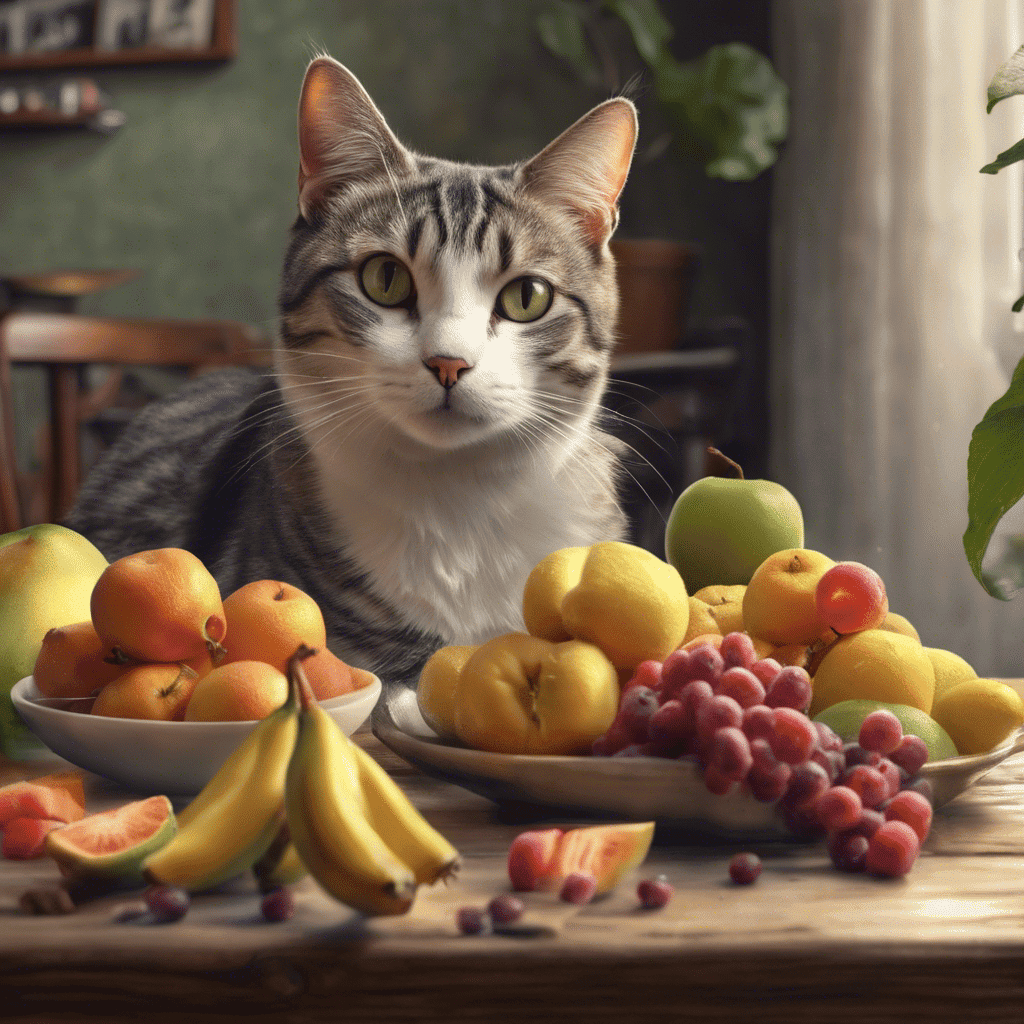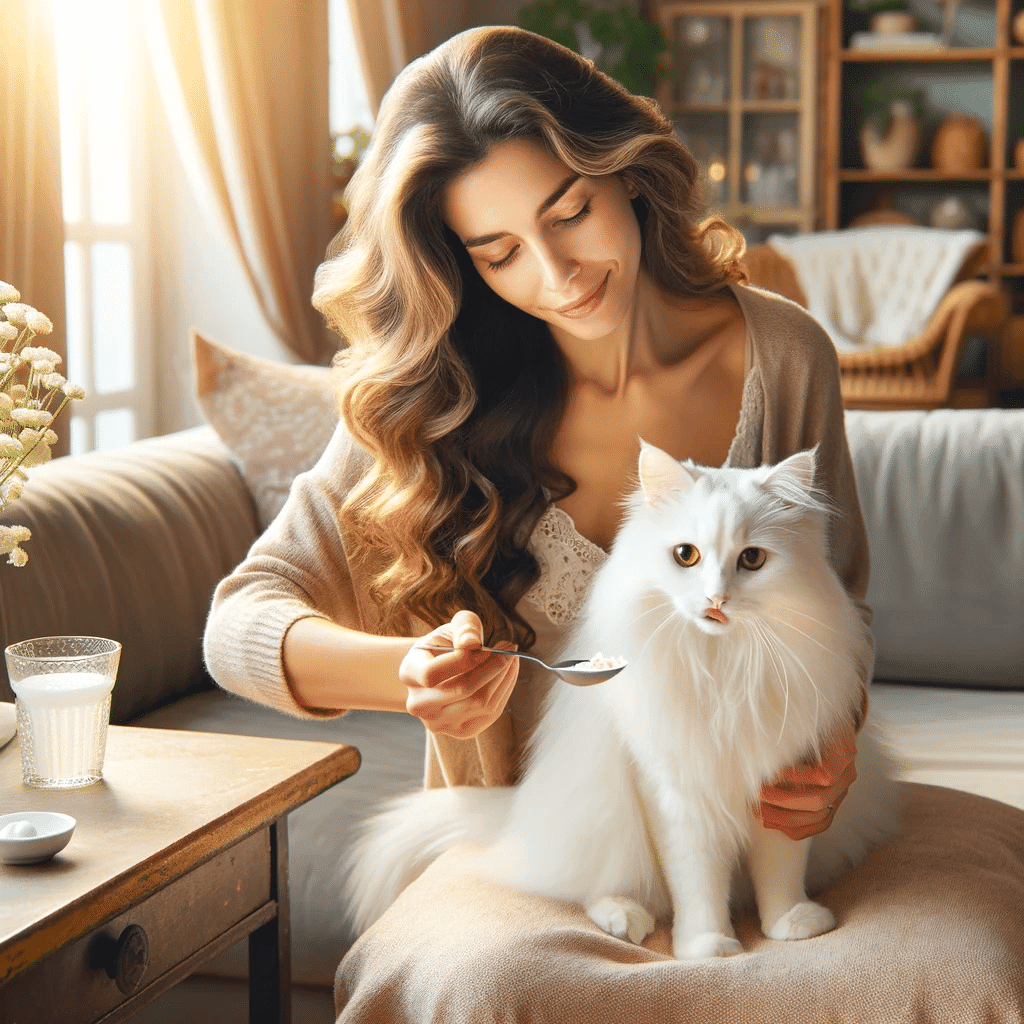
Have you ever watched your kitten struggle with diarrhea and felt unsure about what to do? You’re not alone. Many kitten owners face this challenge, and knowing how to help kitten with diarrhea can make a big difference. Diarrhea in kittens can be alarming, but with the right care, you can often manage it at home. I always emphasize the importance of understanding the causes and acting quickly. A kitten’s health can decline rapidly if diarrhea isn’t addressed. Taking immediate steps can prevent complications and ensure your kitten stays healthy and happy.
Understanding Kitten Diarrhea
When I first encountered kitten diarrhea (belonging to a friend of mine), I felt a mix of worry and confusion. I wanted to help my little furball but didn’t know where to start. Understanding what diarrhea is and why it can be concerning for kittens is the first step in addressing this issue.
What is Diarrhea?
Definition and symptoms
Diarrhea in kittens involves frequent, loose, or watery stools. It can happen suddenly and might last for a short or extended period. You might notice your kitten making more trips to the litter box or having accidents outside of it. The stool may vary in color and consistency, sometimes accompanied by a strong odor.
Why it can be concerning for kittens
Kittens are tiny and fragile. Diarrhea can quickly lead to dehydration, which poses a serious risk to their health. Their small bodies lose fluids and electrolytes rapidly, making it crucial to address the issue promptly. If left untreated, diarrhea can weaken a kitten’s immune system, leaving them vulnerable to infections.
Common Concerns
Impact on kitten’s health
Diarrhea affects a kitten’s overall well-being. It can lead to weight loss, lethargy, and decreased appetite. A kitten needs proper nutrition to grow and thrive, and diarrhea can interfere with nutrient absorption.
This can stunt their growth and development if not managed properly.
Potential for dehydration
Dehydration is a significant concern when dealing with kitten diarrhea. Signs of dehydration include dry gums, sunken eyes, and a decrease in skin elasticity. You can check for dehydration by gently pinching the skin at the back of the kitten’s neck. Your kitten might be dehydrated if the skin doesn’t snap back quickly – ensuring they have access to clean water and monitoring their fluid intake is essential.
Understanding these aspects of kitten diarrhea helps you take the right steps to care for your furry friend. Remember, acting quickly can make all the difference in keeping your kitten healthy and happy.
Common Causes of Kitten Diarrhea
When I first noticed my kitten experiencing diarrhea, I felt a mix of concern and confusion. Understanding the causes of kitten diarrhea helped me address the issue more effectively.
Below are some common causes that might be affecting your little furball.
Dietary Changes
Diet plays a key role in a kitten’s digestive health. I learned this the hard way when I introduced new foods to Doofy too quickly few years back.
Introduction of new foods
Kittens have sensitive stomachs. Introducing new foods can upset their digestive system. I immediately switched the kitten’s food, thinking it would be a treat. Instead, it led to diarrhea. Gradual changes in diet help prevent this. Mixing a small amount of new food with the old one over several days can ease the transition.
Overfeeding
Overfeeding is another common cause of diarrhea in kittens. I used to think more food meant more love. But kittens need balanced portions. Overfeeding can overwhelm their digestive system, leading to loose stools. Sticking to recommended feeding guidelines ensures they get the right amount of nutrients without overloading their tiny tummies.
Parasites and Infections
Parasites and infections are significant causes of kitten diarrhea. They can be sneaky and hard to detect.
Common parasites in kittens
Kittens often fall prey to parasites like roundworms and coccidia. These parasites disrupt their digestive tract, causing diarrhea. Regular deworming and vet check-ups help keep these pests at bay. I learned to watch for signs like a bloated belly or visible worms in the stool.
Signs of infection
Infections can also lead to diarrhea. Bacterial or viral infections often accompany other symptoms like fever or lethargy. I once noticed my kitten acting unusually tired and refusing food. A quick visit to the vet confirmed an infection. Early detection and treatment are vital to prevent complications.
Stress and Environmental Factors
Stress and environmental changes can upset a kitten’s stomach. I discovered this when I moved to a new apartment.
Changes in environment
Kittens are sensitive to changes in their surroundings. Moving to a new home or rearranging furniture can stress them out. This stress can manifest as diarrhea. Creating a calm and familiar environment helps them adjust better. I found that keeping their favorite toys and bedding around provided comfort.
Stress-related diarrhea
Stress-related diarrhea is common in kittens. Loud noises, new pets, or even visitors can trigger it. I learned to introduce changes gradually and provide a safe space for my kitten to retreat. This approach minimized stress and kept her digestive system stable.
Understanding the causes of kitten diarrhea empowers you to take proactive steps. Addressing dietary changes, monitoring for parasites, and managing stress can help keep your kitten healthy and happy.
How to Help Kitten with Diarrhea: Immediate Steps to Take
When I first faced the challenge of how to help kitten with diarrhea, I felt overwhelmed. I wanted to act quickly to ensure my kitten’s health. If you’re in a similar situation, don’t worry.
Here are some immediate steps you can take to manage kitten diarrhea effectively.
Step by Step Detailed Instructions
Withholding food for a short period
The first thing I learned was to withhold food for a short period. This gives the kitten’s digestive system a chance to rest. I usually wait about 12 hours before reintroducing food. During this time, closely monitor your kitten to make sure they stay comfortable.
Not withholding food for too long is essential since kittens require nutrients to remain healthy.
Ensuring hydration
Hydration is something to watch out for when dealing with diarrhea. I always make sure my kitten has access to fresh, clean water. Dehydration can happen quickly, so I check for signs like dry gums or sunken eyes. If I notice these symptoms, I might offer an electrolyte solution to help replenish lost fluids. Keeping my kitten hydrated helps them recover faster.
What You Need
Clean water supply
A clean water supply is essential. I change the water frequently to ensure it’s fresh. Sometimes, I add a little bit of flavor, like chicken broth, to encourage my kitten to drink more. This simple step can make a big difference in maintaining hydration levels.
Electrolyte solutions
Electrolyte solutions can be a lifesaver. I keep a pet-safe electrolyte solution on hand for emergencies. These solutions help replace lost electrolytes and support recovery. Follow the instructions carefully to ensure you giving the right amount. This extra boost can aid in the kitten diarrhea treatment process. Taking these immediate steps can make a significant impact on how to help kitten with diarrhea. Acting quickly and ensuring proper care can prevent complications and promote a speedy recovery.
If symptoms persist, consulting a veterinarian is always the best course of action.
Home Remedies and Treatments
When I first faced the challenge of kitten diarrhea, I felt a bit lost. I wanted to help my little furball without rushing to the vet for every minor issue. Over time, beside over-the-counter medications, I discovered some effective home remedies for diarrhea. Let me share these with you.
Safe Home Remedies
Bland diet options
A bland diet can work like magic for a kitten with diarrhea. I usually start with plain boiled chicken or turkey. These proteins are gentle on the stomach and easy to digest. Sometimes, I add a bit of plain boiled rice. It acts as a filler and helps firm up the stool. Remember, no seasoning or oils. Just plain and simple.
Probiotics for gut health
Probiotics can be a game-changer. They help restore the natural balance of bacteria in the gut. I often use a pet-safe probiotic powder. A sprinkle on their food can make a big difference. It supports digestion and helps reduce diarrhea. Always check with your vet for the right type and dosage.
Dietary Adjustments
Gradual reintroduction of regular diet
Once the diarrhea starts to improve, I slowly reintroduce the regular diet. I mix a small amount of their usual food with the bland diet. Over a few days, I increase the regular food while decreasing the bland diet.
This gradual change helps prevent any sudden digestive upset.
Avoiding certain foods
Certain foods can trigger diarrhea in kittens. I avoid dairy products, as many kittens are lactose intolerant. Also, I steer clear of fatty or spicy foods. These can irritate the stomach and worsen diarrhea. Sticking to a balanced, kitten-specific diet keeps their tummy happy.
Here’s a quick reference table for bland diet options and foods to avoid:
|
Bland Diet Options |
Foods to Avoid |
|---|---|
|
Boiled chicken |
Dairy products |
|
Boiled turkey |
Fatty foods |
|
Plain boiled rice |
Spicy foods |
|
Probiotic powder |
Seasoned foods |
These home remedies and dietary adjustments have helped me manage kitten diarrhea effectively. They provide relief and support recovery. If symptoms persist, always consult a veterinarian. Your kitten’s health is worth it.
When to See a Vet
Have you ever felt that nagging worry when your kitten’s diarrhea just won’t go away? I know I have. It’s tough to decide when to handle things at home and when to call in the professionals. But knowing when to see a veterinarian can make all the difference for your kitten’s health.
Let’s get into the signs that mean it’s time to pick up the phone and call your veterinarian.
Symptoms Requiring Veterinary Attention
Persistent diarrhea
If your kitten’s diarrhea lasts more than 24 to 48 hours, it’s time to consult a veterinarian. Persistent diarrhea can lead to dehydration and other serious health issues. I remember a time when my kitten had diarrhea for two days straight. I knew it was beyond what I could handle at home.
The veterinarian was able to diagnose the underlying issue and provide the right treatment. Don’t wait too long; your kitten’s health depends on timely intervention.
Signs of dehydration
Dehydration is a red flag that requires immediate veterinary attention. Look for signs like dry gums, sunken eyes, and lethargy. I once noticed my kitten’s skin didn’t bounce back quickly when pinched. That was a clear sign of dehydration. The veterinarian provided fluids and care that I couldn’t offer at home.
If you spot these symptoms, don’t hesitate to reach out to your veterinarian. They have the tools and knowledge to help your kitten recover.
Prevention Tips
When I first started caring for kittens, I quickly learned that prevention is key to keeping them healthy and happy. Kitten diarrhea prevention isn’t just about treating symptoms; it’s about creating a lifestyle that supports their well-being. Let me share some tips that have worked wonders for me.
Proper Diet
A proper diet forms the foundation of a kitten’s health. I can’t stress enough how important balanced nutrition is for preventing diarrhea.
Balanced nutrition
Kittens need a diet rich in essential nutrients. I always choose high-quality kitten food that meets their dietary needs. This ensures they get the right balance of proteins, fats, and carbohydrates. A well-nourished kitten is less likely to experience digestive issues. I also keep an eye on their weight and adjust portions as needed. A healthy diet supports their growth and helps prevent diarrhea.
Avoiding sudden dietary changes
Sudden changes in diet can upset a kitten’s stomach. I learned this the hard way when I switched foods too quickly. Now, I introduce new foods gradually. Mixing a small amount of the new food with their current diet over several days helps their digestive system adjust. This simple step can prevent diarrhea and keep their tummy happy.
Regular Vet Check-ups
Regular vet check-ups play a crucial role in prevention. They help catch potential issues before they become serious.
Importance of vaccinations
Vaccinations protect kittens from various diseases. I make sure my kittens are up-to-date on their shots. This not only prevents illnesses but also reduces the risk of diarrhea caused by infections. My vet provides a vaccination schedule, and I stick to it diligently. Vaccinations are a vital part of kitten diarrhea prevention.
Routine parasite control
Parasites can wreak havoc on a kitten’s digestive system. Routine parasite control is essential. I schedule regular deworming treatments and keep an eye out for signs of parasites. My vet helps me choose the right products and timing. Keeping parasites at bay prevents diarrhea and supports overall health.
Here’s a quick reference table for kitten prevention tips:
|
Prevention Tip |
Action Steps |
|---|---|
|
Balanced Nutrition |
Choose high-quality kitten food |
|
Avoid Sudden Changes |
Gradually introduce new foods |
|
Vaccinations |
Follow vet-recommended schedule |
|
Parasite Control |
Schedule regular deworming treatments |
These prevention tips have made a significant difference in my kittens’ health. By focusing on a proper diet and regular vet check-ups, you can prevent diarrhea and ensure your kitten thrives. Remember, prevention is always better than cure.
Most cases of kitten diarrhea can be resolved with proper care. I’ve learned that understanding the causes and treatments ensures your kitten’s health. Regular monitoring and preventive measures are key to avoiding future issues. Always consult a veterinarian if symptoms persist or worsen. Remember, your kitten relies on you for their well-being. By staying informed and attentive, you can help them thrive.
Keep an eye on their diet, hydration, and environment. These simple steps make a big difference in managing and preventing diarrhea. Your furry friend deserves the best care possible.

In her previous life, Lisa traveled extensively, both for work and leisure. After the pandemic struck, Lisa locked up her luggage and adopted a cat ever since.
Lisa is now an avid cat lover, she devotes most of her free time serving as butler to her adorable feline at home. When she is not with her cat, she can be seen using her phone sourcing for the latest cat supplies online.


